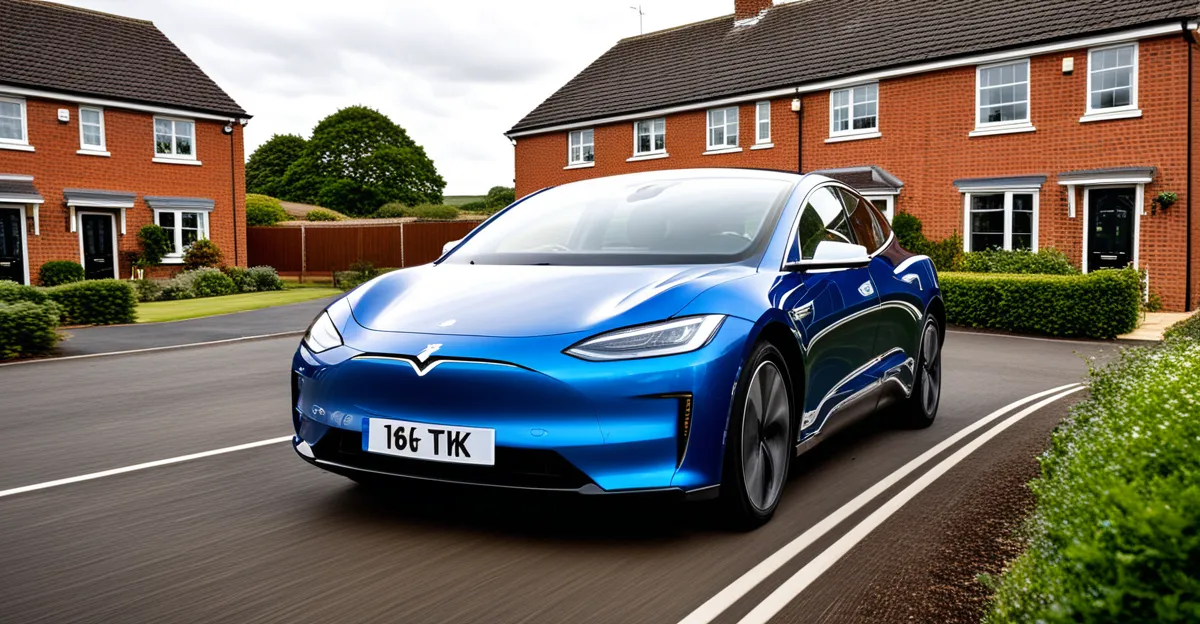Immediate Impacts of Electric Vehicle Adoption on UK Auto Manufacturing
Electric vehicle manufacturing UK is reshaping the automotive industry with a fundamental shift from traditional combustion engines to electric powertrains. This transition requires extensive alterations in EV production UK processes, including retooling factories and investing heavily in new machinery designed specifically for electric drivetrains and battery assembly.
Manufacturers are adapting their facilities to meet the demands of EV production UK, streamlining assembly lines optimized for battery packs rather than conventional engine components. These adjustments often involve significant capital outlay but promise greater efficiency and sustainability in the long term.
In the same genre : How Will Advances in UK Automotive Technology Shape Our Future?
Another critical change is the shift in supplier networks. The UK automotive industry changes to incorporate new component sourcing strategies focused on EV-specific parts such as electric motors, high-voltage cabling, and battery modules. Traditional suppliers of combustion engine parts face reduced demand, while new partnerships with battery manufacturers and electronics specialists flourish.
In summary, electric vehicle manufacturing UK triggers interconnected transformations in production techniques, facility upgrades, and supplier relationships—all vital to maintaining a competitive position within the global automotive industry changes.
Topic to read : What role does 5G technology play in the future of UK automotive connectivity?
Implications for Employment and Workforce Skills
The EV workforce transition is profoundly reshaping auto industry jobs UK, necessitating new skill sets primarily in electrical and battery engineering. Traditional manufacturing roles focused on combustion engines give way to jobs demanding expertise in electric powertrains, battery assembly, and software integration. This shift creates an evident automotive skills gap that the industry must address promptly.
Emerging roles in research and development (R&D) and maintenance require a workforce capable of handling advanced electronics and complex battery management systems. Consequently, retraining existing employees is a critical strategy. Many UK manufacturers and governmental bodies are investing in upskilling programs and technical education to bridge this gap.
A precise question often asked: How is the auto industry jobs UK landscape adapting to EV demands? The answer is a significant reskilling effort, with vocational training emphasizing electrical engineering and digital diagnostics. This is supplemented by partnerships between manufacturers, colleges, and government initiatives to support workers through this transition smoothly. The outcome is a workforce better equipped for the future, ensuring the UK retains its competitiveness in the evolving automotive sector.
Effects on Traditional Car Sales and Dealerships
The traditional car market UK is experiencing a notable decline in internal combustion engine (ICE) vehicle sales as consumer preference shifts towards electric vehicles. This transition directly influences dealership operations, prompting an EV dealership transition that involves rethinking sales strategies and service offerings. Dealerships must adapt to servicing EVs, which require less frequent mechanical maintenance but greater expertise in battery health and software updates.
How does the ICE vs EV sales landscape impact dealers? ICE vehicle sales dipped sharply, compelling dealers to train staff on EV technologies and embrace digital platforms to cater to evolving customer expectations. EVs also introduce different financing and warranty models, requiring adjustments in dealer accounting and customer engagement.
To remain viable, dealerships are modifying business models—incorporating EV-specific customer education, charging installations, and partnerships with manufacturers offering electric mobility solutions. These changes represent both challenges and opportunities, with dealerships positioned as crucial facilitators in mainstreaming EV adoption while navigating a transforming sales ecosystem.
Role of Policy and Government Incentives
Governments play a pivotal role in shaping electric vehicle manufacturing UK trends through targeted UK EV policy and government incentives EV. Key measures include financial grants and tax reliefs, which lower consumer costs and encourage manufacturers to scale EV production UK. These incentives directly support industry growth by reducing barriers to EV adoption.
Why do regulatory pressures matter? Emissions targets compel the automotive sector to accelerate its shift towards electric vehicles, creating a compliance-driven boost for manufacturers and suppliers. Without such regulations, the transition would face slower uptake and less innovation.
Investment in EV infrastructure is another critical area. Public charging networks funded by government initiatives increase accessibility, thus stimulating demand. These efforts collectively enhance the UK’s position within the automotive industry changes underway globally.
In summary, UK government policies establish a framework that incentivizes production scale-up, fosters infrastructure growth, and sets environmental standards. This policy environment is essential to maintaining momentum in the EV market and supporting a sustainable electric vehicle manufacturing UK ecosystem.
Innovation and Technology Development in the UK Auto Sector
Innovation in EV innovation UK is central to advancing the country’s electric vehicle ambitions. The UK leads in battery technology development, with domestic R&D focussed on improving energy density, longevity, and cost-efficiency of battery packs. These improvements directly enhance the viability and attractiveness of electric vehicles produced within the UK, supporting both manufacturers and consumers.
How does the UK foster this growth? Collaborative efforts between automotive R&D UK centres, universities, and technology companies accelerate breakthroughs. This ecosystem leverages academic research and private sector agility to pioneer connected and autonomous vehicle systems, integrating software with hardware to create smarter, safer vehicles.
Recent initiatives in automotive R&D UK highlight the importance of creating scalable, homegrown technologies that reduce reliance on foreign suppliers, improving supply chain resilience. Homegrown innovation also opens pathways for export growth, as UK-developed technologies can be licensed or sold globally.
In conclusion, sustained investment in EV innovation UK and partnerships across sectors propel the UK forward as a competitive, tech-savvy leader in the evolving auto market. This dynamic drives continuous enhancements, underpinning the UK’s reputation for automotive excellence.
Challenges and Opportunities for the UK Automotive Supply Chain
Adapting the automotive supply chain UK to support the shift in electric vehicle manufacturing UK presents significant challenges and opportunities. Securing critical raw materials like lithium and cobalt is a pressing concern, essential for producing high-capacity battery packs that underpin competitive EV production UK. Without reliable sources, manufacturers may face delays or increased costs, affecting the overall supply chain stability.
How does the UK supply chain integrate with global EV markets? The answer lies in forging strategic partnerships with international suppliers while fostering domestic production of key components. This dual approach enhances resilience against geopolitical risks and fluctuating material prices. Advancing local capabilities in battery assembly and electronic components creates new EV industry opportunities, reducing dependence on imports.
Additionally, these shifts open doors for new entrants, including startups focusing on innovative materials or specialised EV parts. Established suppliers in the UK are also adapting, investing in technology upgrades and reorienting their production lines. Overall, evolving the automotive supply chain UK to meet the unique demands of electric vehicles is both a challenge requiring substantial coordination and a chance to solidify the UK’s role in the global EV ecosystem.
Competitive Positioning of UK Automotive Industry Globally
The UK auto industry competitiveness hinges on its ability to adapt swiftly amid rapid global EV market UK expansion. Maintaining strong automotive exports UK requires integrating advanced EV technologies and meeting evolving international standards. How does the UK stand against European and Asian manufacturers? The UK leverages its established manufacturing base while accelerating investments in EV production UK and innovation to remain competitive.
Sustaining competitiveness involves attracting foreign direct investment, which fuels R&D and facility upgrades critical for producing cutting-edge electric vehicles. Domestic policy support further strengthens this position by fostering industry growth and export capabilities.
Key strategies include focusing on high-value components and software integration, setting the UK apart from mass manufacturers. This specialization helps the UK carve a distinct niche within the global EV market UK.
In summary, the UK’s global positioning depends on balancing tradition with innovation, tapping into export markets while enhancing domestic EV production capabilities, thus securing long-term viability as a leader in the automotive industry changes.








